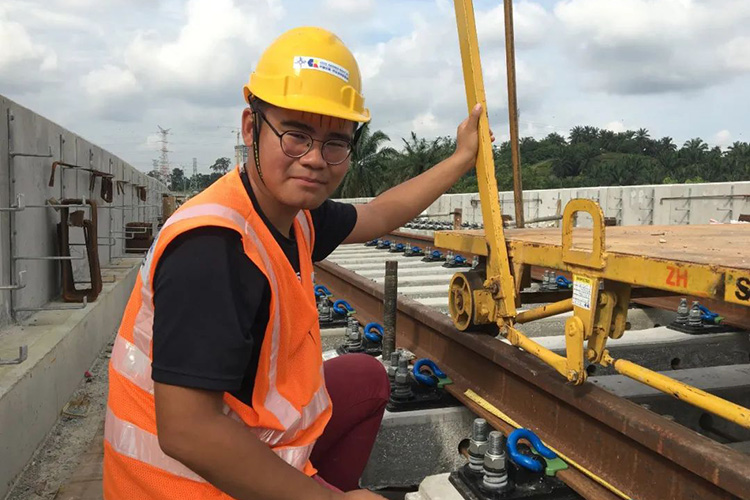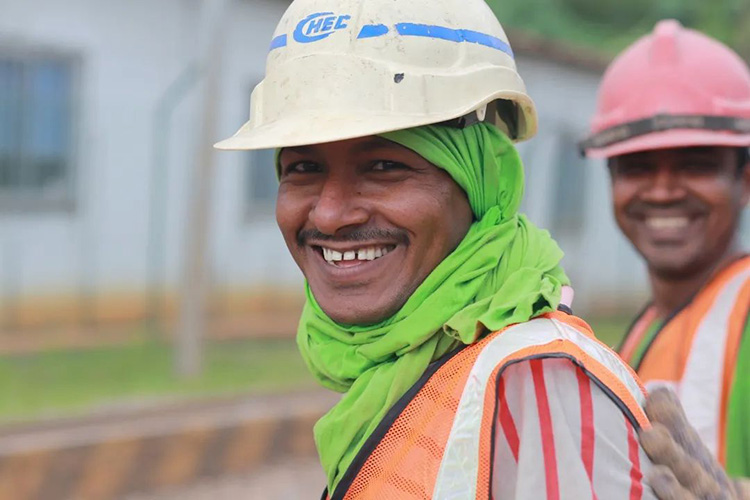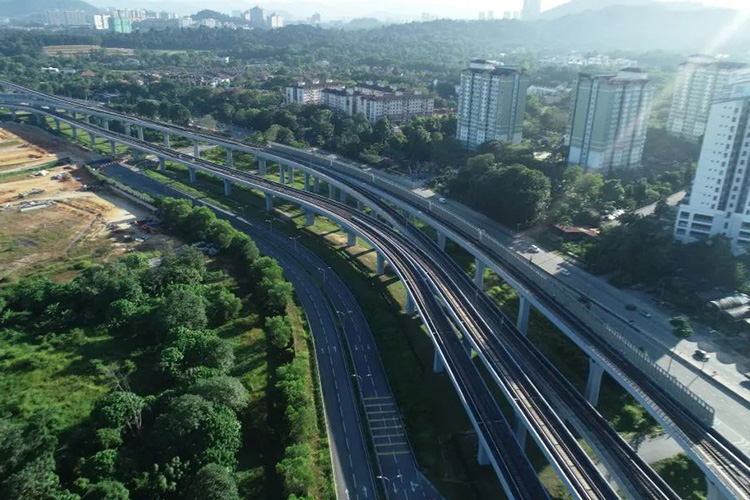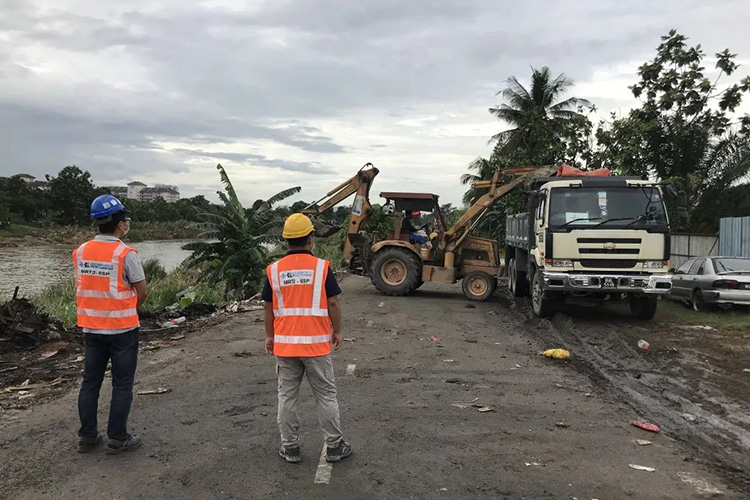Recently, the four-page special edition of Communications Construction News reported the opening and operation of the Phase 1 of the MRT Line 2 in Kuala Lumpur constructed by CCCC.
On June 16, 2022, the Phase 1 of the MRT Line 2 in Kuala Lumpur, Malaysia was officially opened for operation. While going global with Chinese standards, technology, management and equipment, CCCC is actively promoting localization and fulfilling its social responsibility to achieve win-win development with local enterprises.
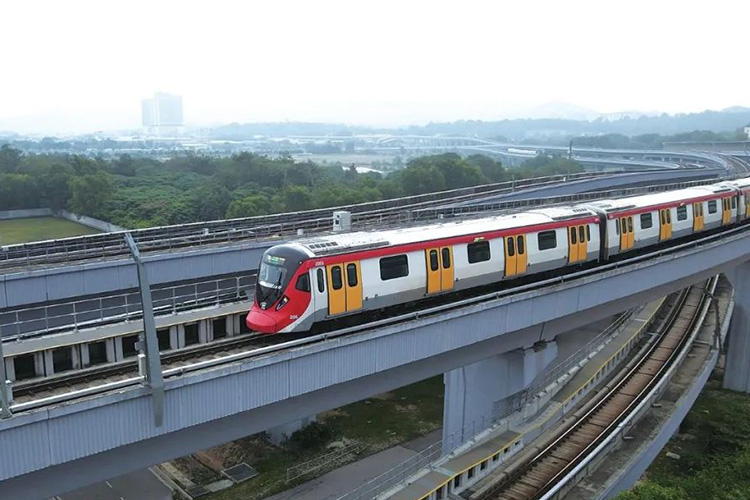
The MRT Line 2 in Kuala Lumpur is the north-south artery of the rail transit network in the Greater Kuala Lumpur, which will enable more than 2 million residents along the line to have a half-hour living circle and greatly reduce local traffic congestion. The project 2 is 57.7 kilometers long, with an elevated section of 38.7 kilometers, an underground section of 13.5 kilometers, and a total of 36 stations. The line will be constructed and operated in two phases: Phase 1 from Kwasa Damansara to Kampung Batu with a total of 18 kilometers; Phase 2 from Kampung Batu to Putrajaya with a total of 39.7 kilometers. Phase 2 is expected to be opened for operation in the first quarter of 2023.
CCCC is responsible for the design, procurement and transportation of six kinds of special maintenance vehicles, as well as the track transportation of the materials for the projects of communication, signalling, power, and electrification.
Technical Breakthrough
The project adopts European standards for construction and the CCCC team has solved many technical problems. Taking flash welding test as an example, the team solved the technical problem 2 months earlier than planned after more than 100 experiments. In the development and modification of large machinery and equipment, the project team designed a welding rail production line which is more easier and faster to be installed, and its length is shortened from 300 meters to about 100 meters, greatly improving the efficiency of transportation.
Promote Localization
During construction, the project department has built an international management team with close cooperation and good relationship among employees from different countries. In combination with China's apprentice model to train new employees, the project department has carried out training for local employees. At present, the localization of the project department is over 85%. International employees not only take up skilled jobs, but also grow into project management staff through long-term training by the project department, and play a role in design, quality, construction, safety management and other important positions.
After three years of working in the project, recalling the experience with the project team, a young Malaysian employee was moved: "We are a whole, a team with love, and the training of the project department has helped my career development."
Technical Exchange
In order to enhance Malaysia Institute of standards and Industrial Research's (SIRIM) understanding of the Chinese railroad testing and certification system, the project department, together with the China Academy of Railway Sciences, carried out training on Chinese railroad standard testing and certification. CCCC also assisted SIRIM to develop 10 professional technical standards of Malaysian rail including the standards for aluminum heat welding, fasteners, turnouts, rail sleepers, and rails.
Willingly Fulfilling Corporate Social Responsibility
The project department sponsored six Malaysian students from the University of Kuala Lumpur to further their studies at Southwest Jiaotong University for master's and doctoral degrees related to railroad engineering, which has enhanced the local industrial development and trained local technical talents.
During the COVID-19 epidemic, the project department actively provided local partners and international students with as much help as it could, presenting much-needed epidemic prevention materials to them.
At the end of 2021, many parts of Malaysia were flooded, and the houses and roads around the project camp were severely damaged. The project department reached to the affected areas immediately to clean up the garbage and silt, repair the roads and help the residents return to normal as soon as possible.
"Seeing the project staff doing their best to rebuild our homes amid wind and rain, I am both grateful and moved, and have the confidence to win the battle against the flood." A senior in the affected area said.

